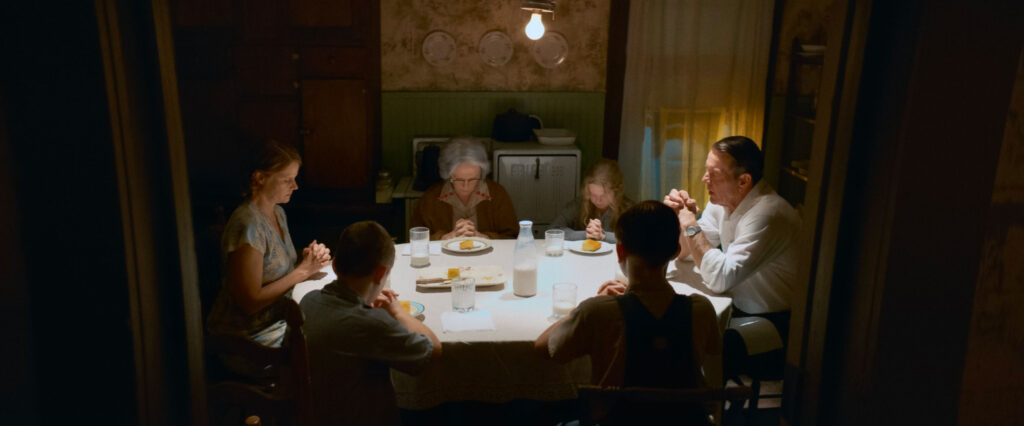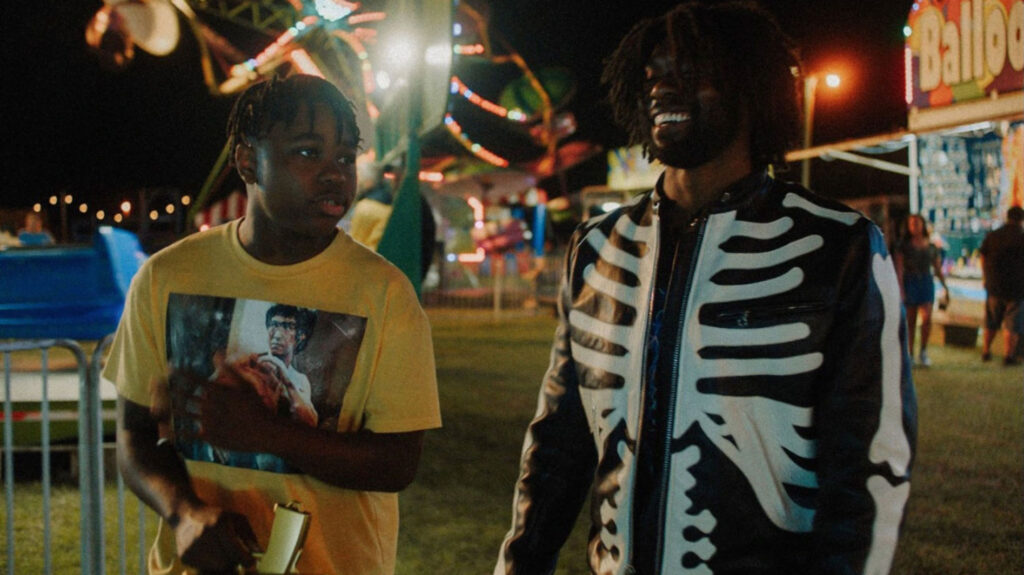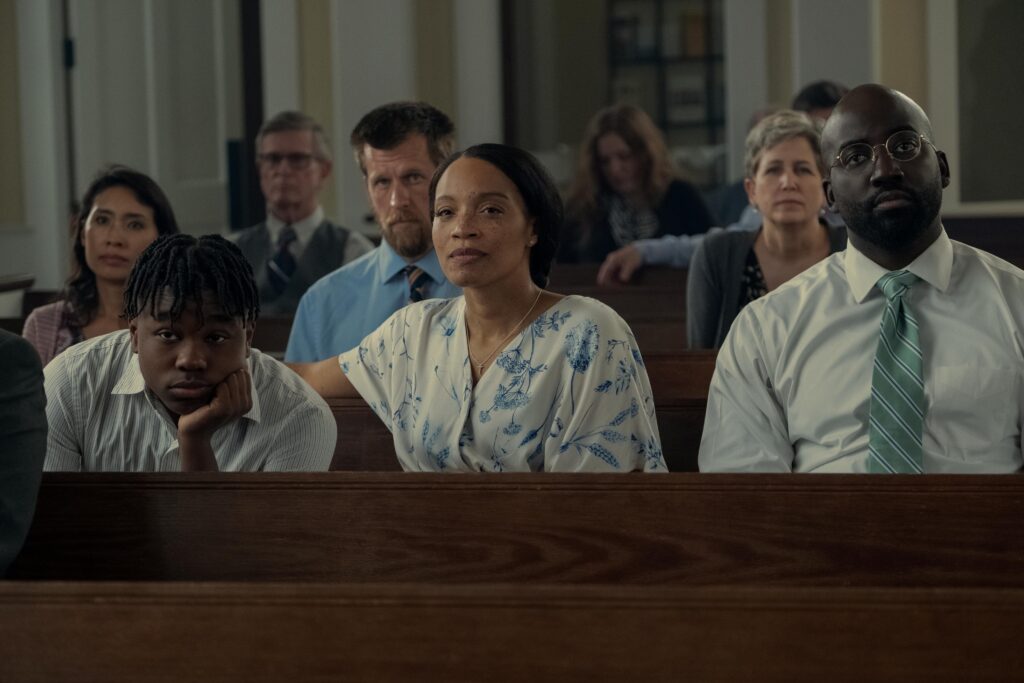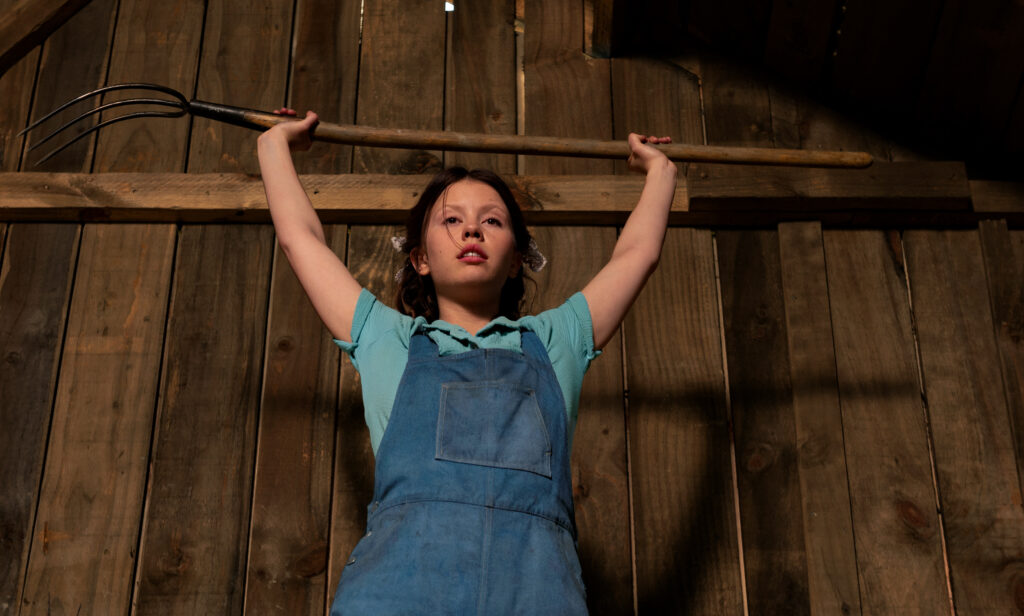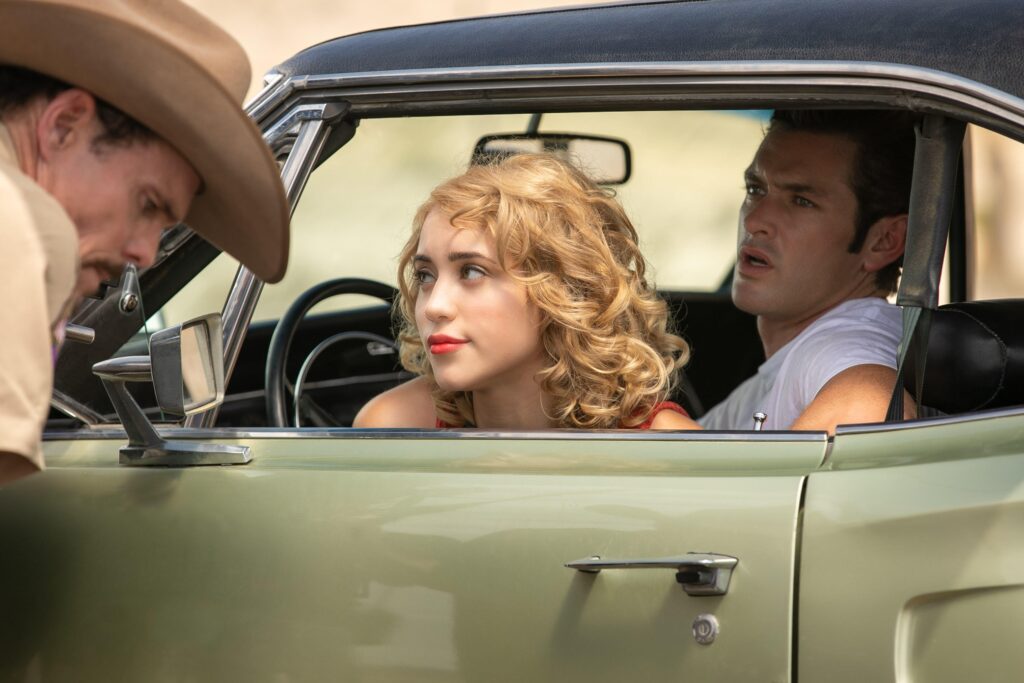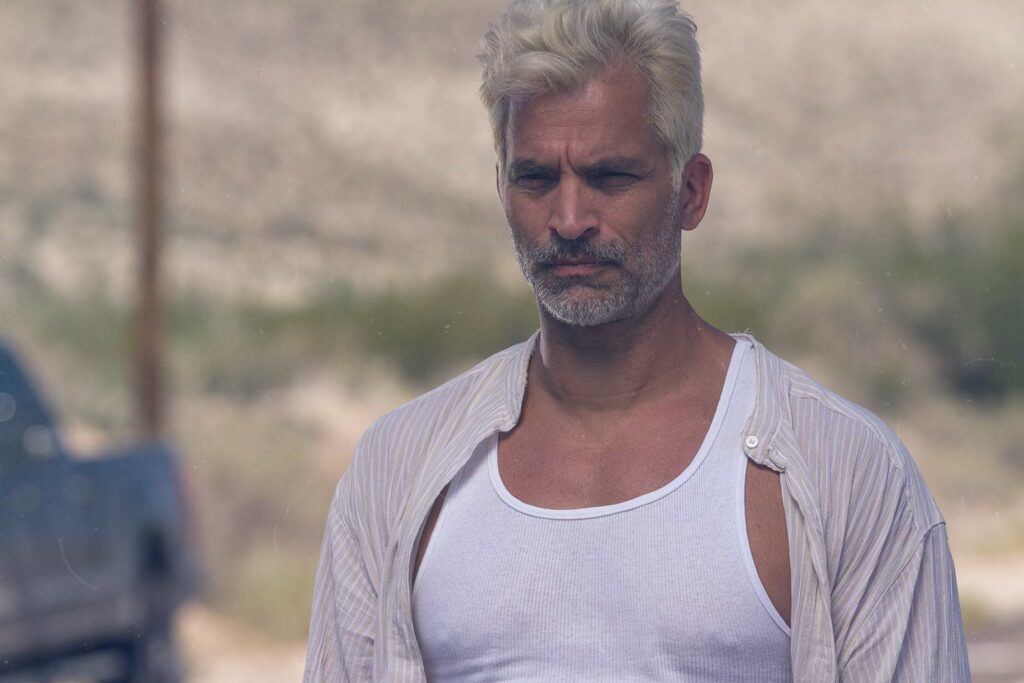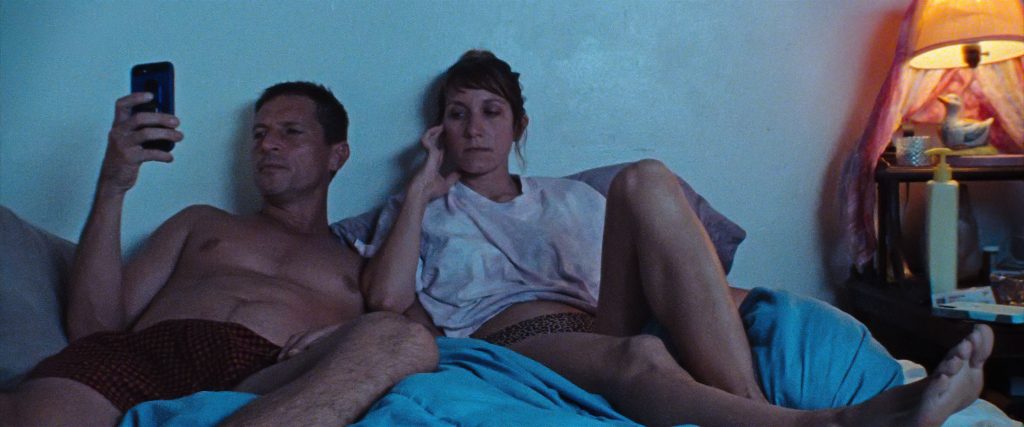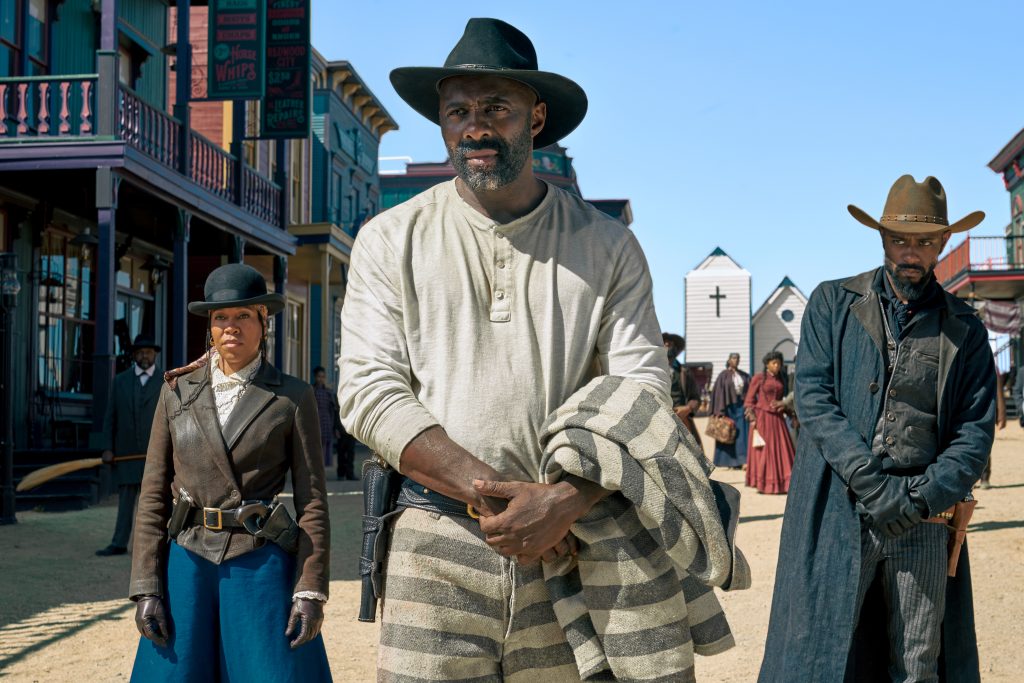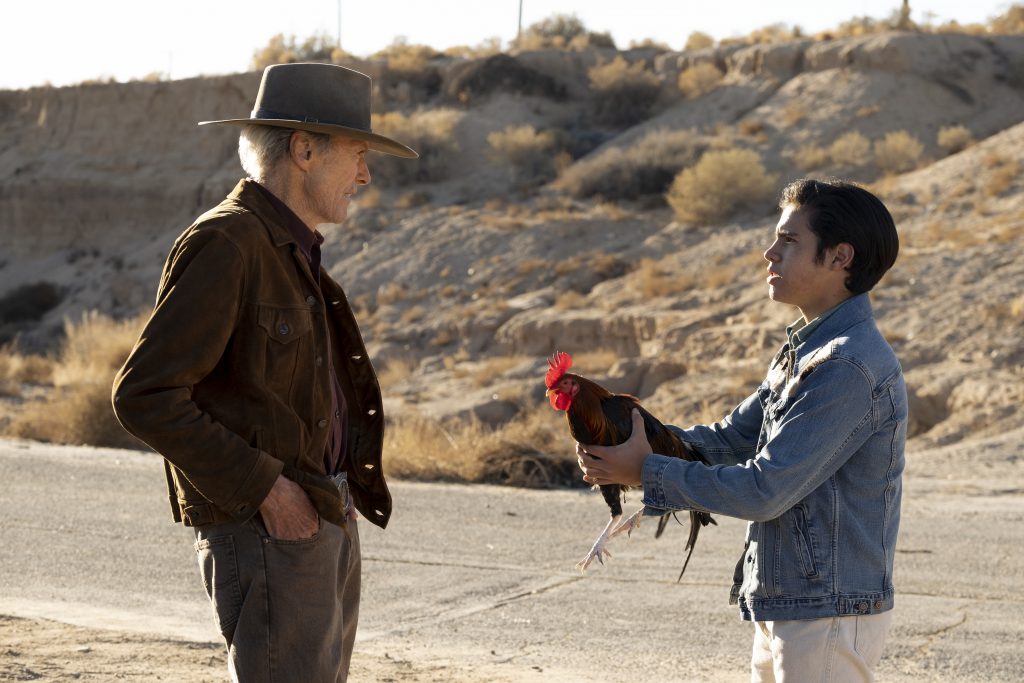December 13, 2023
by Carla Hay
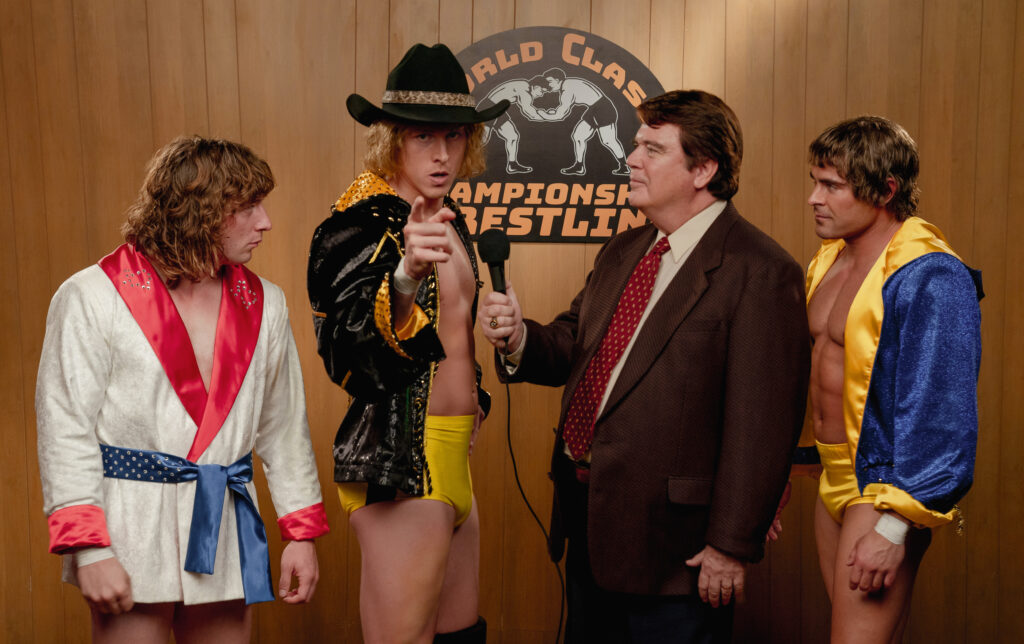
Directed by Sean Durkin
Culture Representation: Taking place in the United States (mostly in Texas), from the late 1970s to the early 1990s, the dramatic film “The Iron Claw” (based on a true story) features a predominantly white cast of characters (with a few Latin people) representing the working-class, middle-class and wealthy.
Culture Clash: In professional wrestling, the Von Erich family (led by hard-driving patriarch Fritz Von Erich) achieves great success, but the family also experiences immense tragedies.
Culture Audience: “The Iron Claw” will appeal primarily to people who are fans of professional wrestling, star Zac Efron, and impactful stories about the down sides of chasing after fame and fortune.

The emotionally wrenching drama “The Iron Claw” tells the tragic story of pro wrestling’s Von Erich family from Kevin Von Erich’s perspective. There are advantages and disadvantages to this narrative choice. Good performances outweigh the movie’s flaws. Viewers who already know what happened in real life can still feel deeply affected by how it’s portrayed in this movie.
Written and directed by Sean Durkin, “The Iron Claw” is based on the true story of the Von Erich family, led by domineering patriarch Fritz Von Erich (played by Holt McCallany), a professional wrestler who had one main ambition in life after he retired: make all of his sons world champions in wrestling, just like he was in the 1960s, when he was known for his signature wrestling move called the Iron Claw. Almost all of the movie’s story takes place from the late 1970s to the early 1990s. Fritz and his devout Christian wife Doris Von Erich (played by Maura Tierney) had no daughters. Fritz’s birth name was Jack Barton Adkisson. He changed his name when he became a wrestler.
The sons of Fritz and Doris are introverted Kevin (played by Zac Efron), born in 1957; charismatic David (played by Harris Dickinson), born in 1958; brooding Kerry (played by Jeremy Allen White), born in 1960; and sensitive Mike (played by Stanley Simons), born in 1964. Fritz and Doris had a first-born son named Jack, who died in a drowning accident in 1952, at the age of 6. (In the movie, Jack’s age at the time of death is mentioned as 5 years old.) In real life, Fritz and Doris had another son named Chris (born in 1969), who does not exist in “The Iron Claw.”
The beginning of the movie is a flashback in black and white to a time in the early 1960s, when Fritz’s career was on the rise. After defeating an opponent in a match, a triumphant Fritz is congratulated at the venue by Doris, who has brought their two sons Kevin (played by Grady Wilson), who’s about 6 years old, and David (played by Valentine Newcomer), who’s about 5 years old. As they walk to the parking lot, Fritz proudly shows a Cadillac that he has recently purchased, but the family can’t afford it.
Doris tells Fritz that she’s worried about this financial burden, but Fritz dismisses her concerns and tells her that in order to be a big star, he has to live like a big star. Fritz promises Doris that he will become a world champion and make enough money for them to be affluent. Doris believes that her husband is the boss of their household, so her main response is to start praying out loud.
The movie switches to color when it fast-forwards to 1979, at the beginning of the wrestling careers of Kevin and David. The Von Erichs live on a ranch in Texas, in the Dallas area. (“The Iron Claw” was actually filmed in Baton Rouge, Louisiana.) Kerry is away from home, because he’s training as a track-and-field Olympian for the 1980 Summer Olympics. Kevin, David and Mike live with their parents, who are very strict.
The Von Erichs are a tight-knit clan who love each other and are very loyal to each other. The “Iron Claw” has several scenes of the Von Erich brothers bonding over athletics, whether it’s during their wrestling training, being in the wrestling ring together with opponents, or playing a casual game of football. Fritz’s name is associated with the Iron Claw, but he rules his family with an iron fist. There is harmony overall in the family, as long as Fritz gets his way in telling other people in the family what to do.
Fritz makes their lives revolve around wrestling. Doris makes sure the family also regularly attends church services. Both parents don’t like to get involved in any conflicts that the brothers have with each other and don’t like to hear about any personal problems that their sons might be having. In a scene where Kevin tries to talk to Doris about a problem with David, she cuts him off and tells him that he and David have to work it out amongst themselves.
As Kevin says in a voiceover: “Ever since I was a child, people said our family was cursed. We never talked about it … Bad things kept happening. Mom tried to protect us with God. Dad tried to protect us with wrestling. He said if we were the toughest, the strongest, the most successful, nothing would ever hurt us. We believed him.”
This isn’t a household where the parents act as if they love their children equally. In a scene that takes place during a family breakfast at the Von Erich home, Fritz openly says that Kerry is his favorite child, followed by Kevin, David and Mike. Fritz also says “the rankings can change,” which is an obvious sign that Fritz pits his sons against each other to compete for his approval. Doris doesn’t “rank” her children, but she passively goes along with whatever Fritz’s parenting decisions are.
Although Kevin and David have enthusiastically become wrestlers, Mike isn’t as athletic and shows indications that he would rather be a musician. Mike is in a local rock band, where he plays guitar and sings lead vocals, but he lies to his parents by saying that he’s in a classical quartet. Mike’s brothers know about this secret though, and they support what Mike does with his band. When the Von Erich sons aren’t wrestling, they make some money from the family’s ranch activities.
“The Iron Claw” somewhat wanders for the first third of the film when showing how the wrestling careers of Kevin and David develop. After the United States boycotts the 1980 Summer Olympics, Kerry returns to the family home and willingly becomes a wrestler on Fritz’s orders. At first, Kevin seems to be the son who will become the first wrestling champ of his brothers, but eventually one of the brothers overshadows him, as commanded by Fritz.
A great deal of the movie shows the relationship between Kevin and a local young woman named Pam (played by Lily James), who meets Kevin when he’s approximately 22 or 23 years old, and she’s about the same age. Pam introduces herself to Kevin after one of his wrestling matches. She asks for his autograph, which quickly turns into Pam flirting with Kevin and prompting him to ask her out on a date.
Kevin is depicted as very inexperienced with dating. He later reveals to Pam that he’s a virgin. They have a sweet courtship, with Pam (who is very outspoken and bold) announcing fairly quickly to Kevin that she wants to become a veterinarian and expects her future husband to be okay with her having a career outside the home. Kevin approves and says they can be a power couple who could live on a big ranch with his family.
One of the noticeable shortcomings with “The Iron Claw” is it makes Kevin look too squeaky clean to be completely believable. As the wrestling success of the Von Erich brothers begins to grow, Kerry and David are shown indulging in illegal drugs (such as cocaine) and using steroids. But the movie makes it look like Kevin was just an observer who stayed away from those vices. It’s not very credible, considering that Kevin in real life has openly said in interviews that he had those vices.
Based on what happens to this family, it’s understandable why the movie is told from Kevin’s perspective. Efron gives an admirable performance as Kevin, who keeps a lot of his feelings bottled up inside, often to Kevin’s detriment. However, “The Iron Claw” tends to gloss over the real-life horrific emotional abuse that Fritz inflicted on his sons. And although White gives a very nuanced performance as Kerry, when Kerry starts to unravel, many unflattering details that happened in real life are left out of the story.
Richard Reed Parry and Little Scream’s song “Live That Way” is performed by the character of Mike with his band. Parry (who also composed the musical score for “The Iron Claw”) uses instrumental snippets of “Live That Way” throughout the film. And by the time the song is heard again during the movie’s end credits, it packs an emotional punch that will leave many viewers sobbing.
“The Iron Claw” succeeds in its intentions to be a tearjerking drama. The movie also has well-shot wrestling scenes that will be thrilling for wrestling fans to watch. There’s some good comic relief in scenes depicting real-life wrestling stars Harley Race (played by Kevin Anton), Ric Flair (played by Aaron Dean Eisenberg) and the Fabulous Firebirds (played by Michael Proctor, Silas Mason and Devin Imbraguglio). However, some viewers might think a few of the movie’s sad scenes are too cloying and manipulative.
The character of David is underdeveloped, which is a disappointment, considering that the movie shows glimpses of David’s big extroverted personality but doesn’t really bother to reveal what was going on in David’s interior life. “The Iron Claw” has other huge gaps in the story that raise questions that remain unanswered in the movie. Despite some of these imperfections, “The Iron Claw” is worth seeing and has enough appeal to be appreciated by people who aren’t wrestling fans. Just don’t expect the movie to be a comprehensive character study of all of the Von Erich brothers.
A24 will release “The Iron Claw” in U.S. cinemas on December 22, 2023. A sneak preview of the movie was shown in select U.S. cinemas on December 13, 2023.


